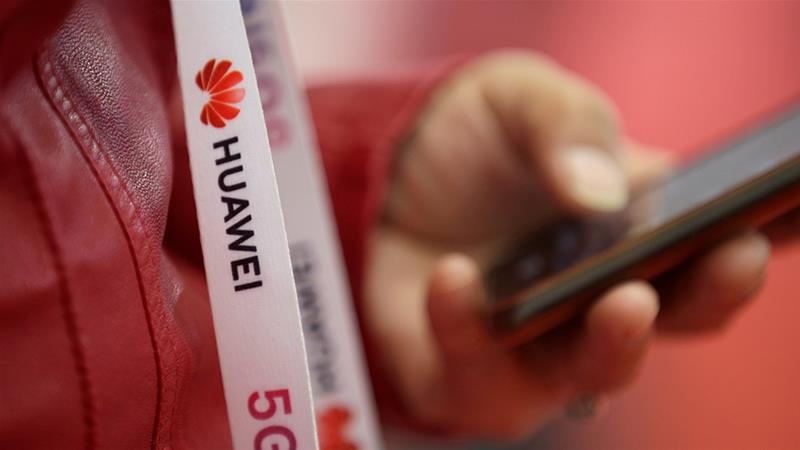The Chinese firm is challenging the US regulator's ruling that stops rural carriers from buying Huawei products.
China's Huawei Technologies Co Ltd has mounted a legal challenge against the United States Federal Communications Commission (FCC) after the body designated the technology giant as a security threat and moved to bar it from a government subsidy program.
The FCC last month voted unanimously to designate Huawei and ZTE Corp, another Chinese telcommunication equipment company, as national security risks, and barred their US customers from tapping an $8.5bn government fund to purchase Huawei or ZTE telecommunications equipment.
Huawei said on Thursday it filed a petition with the Fifth Circuit Court in New Orleans challenging the FCC decision.
The FCC argued the companies' ties to China's government and military apparatus, and Chinese laws requiring that such companies assist the Chinese government with intelligence activities, pose a US national security risk.
It also voted to propose requiring that carriers remove and replace equipment from Huawei and ZTE in existing networks.
"Banning a company like Huawei, just because we started in China - this does not solve cybersecurity challenges," Huawei's Chief Legal Officer Song Liuping told a news conference at the firm's headquarters in Shenzhen.
He said the FCC failed to provide evidence to show Huawei is a security threat and claimed "this decision, just like the entity list in May, is based on politics, not security".
FCC spokesman Brian Hart declined to comment. On Wednesday, the agency's chairman said he will propose $9bn in funding over the next decade to boost fifth-generation (5G) wireless telecommunications coverage in rural US areas.
The Huawei document was not yet available in the US court filing system.
US President Donald Trump in May placed Huawei on the country's trade blacklist, citing national security concerns, which banned companies from supplying Huawei with US components without special licences.
The move came after Washington brought criminal charges against Huawei, alleging theft of trade secrets, bank fraud and violation of US sanctions against Iran. It has also sought to convince allies to ban it from the next generation of mobile telecommunications networks over spying fears - ratcheting up tension with Beijing in a tit-for-tat trade war.
The US is now weighing expanding its power to stop more foreign shipments of products with US technology to Huawei, Reuters reported last week.
Karl Song, vice president of Huawei's corporate communications department, said in a statement the FCC rule threatened improvements to connectivity in rural America, would cost hundreds of millions of dollars and even force some small carriers to go bankrupt.
Asked to comment on Huawei's sales to rural carriers, Song said the firm's US revenue was "minimal" compared with the $11bn in goods that it procured from the US.
Alan Fan, Huawei vice president of IP strategy and international legal policy, said US rural carriers and groups submitted 90 comments to the FCC, 58 percent of which opposed action against it.
The Chinese telecoms giant has also in recent days faced a public backlash at home after details of the dismissal and wrongful detention of a former employee went viral. Chinese media have also reported on at least one other similar case.
Asked about the matter, Song said it was not a labour dispute and the company was obligated to report to authorities any suspicious, unlawful act.
SOURCE: Reuters news agency

